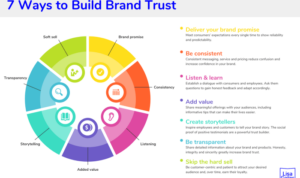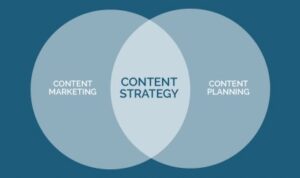Creating B2B Marketing Campaigns sets the stage for innovative strategies that drive business growth and success, offering a roadmap to navigate the complex world of B2B marketing with confidence and creativity.
Dive into the intricacies of market research, content creation, and digital marketing channels to craft campaigns that resonate with B2B audiences and elevate your brand to new heights.
Understanding B2B Marketing Campaigns: Creating B2B Marketing Campaigns
B2B marketing campaigns refer to the strategies and tactics used by businesses to promote their products or services to other businesses. These campaigns are crucial in the business world as they help companies generate leads, build relationships, and ultimately drive sales.
Now, let’s delve into the key differences between B2B and B2C marketing strategies.
Differences Between B2B and B2C Marketing Strategies
- B2B marketing focuses on selling products or services to other businesses, while B2C marketing targets individual consumers.
- In B2B marketing, the sales cycle is usually longer and involves multiple decision-makers, compared to the shorter, more straightforward sales cycle in B2C marketing.
- B2B marketing campaigns often emphasize the value, benefits, and ROI of the product or service, while B2C marketing tends to focus more on emotional appeals and brand loyalty.
Examples of Successful B2B Marketing Campaigns
- Adobe’s “CMO.com”: Adobe’s content-driven platform provides valuable resources and insights for marketing professionals, positioning Adobe as a thought leader in the industry.
- HubSpot’s “Inbound Marketing Methodology”: HubSpot’s inbound marketing approach has revolutionized the way businesses attract, engage, and delight customers, leading to significant growth for the company.
- IBM’s “Smarter Planet Campaign”: IBM’s campaign focused on showcasing how technology can solve complex global challenges, highlighting the company’s expertise and innovation in the industry.
Research and Planning

Market research and planning are crucial components in creating effective B2B marketing campaigns. By understanding the market and planning strategically, businesses can tailor their campaigns to reach their target audience effectively.
The Importance of Market Research
Market research helps businesses gain insights into their target market, competitors, and industry trends. It allows companies to identify opportunities and challenges, making informed decisions to drive their marketing strategies. Here are the essential steps involved in planning a B2B marketing campaign:
- Identifying Target Audience: Conduct research to understand the demographics, behaviors, and preferences of your target B2B customers.
- Competitor Analysis: Analyze competitors’ strategies, strengths, and weaknesses to differentiate your offerings effectively.
- Industry Trends: Stay updated on industry trends and changes to anticipate shifts in the market and adjust your marketing strategies accordingly.
- Setting Campaign Goals: Define clear and measurable goals for your B2B marketing campaign to track progress and success.
Market research is the foundation of a successful B2B marketing campaign, providing valuable insights to guide strategic decisions.
Role of Buyer Personas
Buyer personas are fictional representations of your ideal customers, based on market research and real data. They play a crucial role in shaping B2B marketing strategies by helping businesses understand their customers’ needs, preferences, and pain points. Here’s how buyer personas impact marketing strategies:
- Targeted Messaging: Tailor your marketing messages to resonate with specific buyer persona characteristics, addressing their unique challenges and motivations.
- Personalized Content: Create content that speaks directly to the needs of each buyer persona, increasing engagement and driving conversions.
- Lead Nurturing: Develop targeted lead nurturing campaigns that guide prospects through the buying journey based on their buyer persona profiles.
Content Strategy and Creation

When it comes to creating a successful content strategy for B2B marketing campaigns, it’s important to focus on providing value, engaging the audience, and telling a compelling story. Here are some key elements to consider:
Elements of a Successful Content Strategy
- Identify your target audience and their pain points.
- Set clear objectives and goals for your content.
- Create a content calendar to plan and organize your content effectively.
- Utilize a mix of different content types such as blog posts, case studies, videos, and infographics.
- Ensure your content is optimized for to increase visibility and reach.
Tips for Creating Engaging Content
- Focus on providing valuable insights and solutions to your audience’s challenges.
- Use data and statistics to back up your claims and establish credibility.
- Personalize your content to resonate with your target audience on a deeper level.
- Experiment with different formats and styles to keep your content fresh and interesting.
Role of Storytelling in B2B Marketing
Storytelling plays a crucial role in B2B marketing as it helps humanize your brand, connect with your audience emotionally, and make your message more memorable. By weaving a compelling narrative throughout your content, you can enhance the effectiveness of your marketing campaigns and leave a lasting impact on your audience.
Utilizing Digital Marketing Channels
In today’s digital age, B2B marketers have a plethora of channels at their disposal to reach and engage with their target audience. Leveraging these digital marketing channels effectively can significantly impact the success of B2B marketing campaigns.
Email Marketing, Creating B2B Marketing Campaigns
- Utilize personalized and targeted email campaigns to nurture leads and drive conversions.
- Segment your email list based on various criteria to deliver relevant content to the right audience.
- Monitor email open rates, click-through rates, and other metrics to optimize campaign performance.
Social Media Marketing
- Choose social media platforms that align with your target audience and business objectives.
- Create engaging and shareable content to increase brand visibility and drive traffic to your website.
- Utilize social media analytics tools to track performance metrics and adjust strategies accordingly.
(Search Engine Optimization)
- Optimize your website and content with relevant s to improve search engine rankings.
- Create high-quality and valuable content that resonates with your target audience and drives organic traffic.
- Regularly monitor and analyze performance to make data-driven decisions for ongoing optimization.
Integrating these digital marketing channels harmoniously can amplify your B2B marketing campaigns and maximize their impact. By leveraging data analytics to track performance and make informed decisions, you can continuously optimize your strategies for better results.





